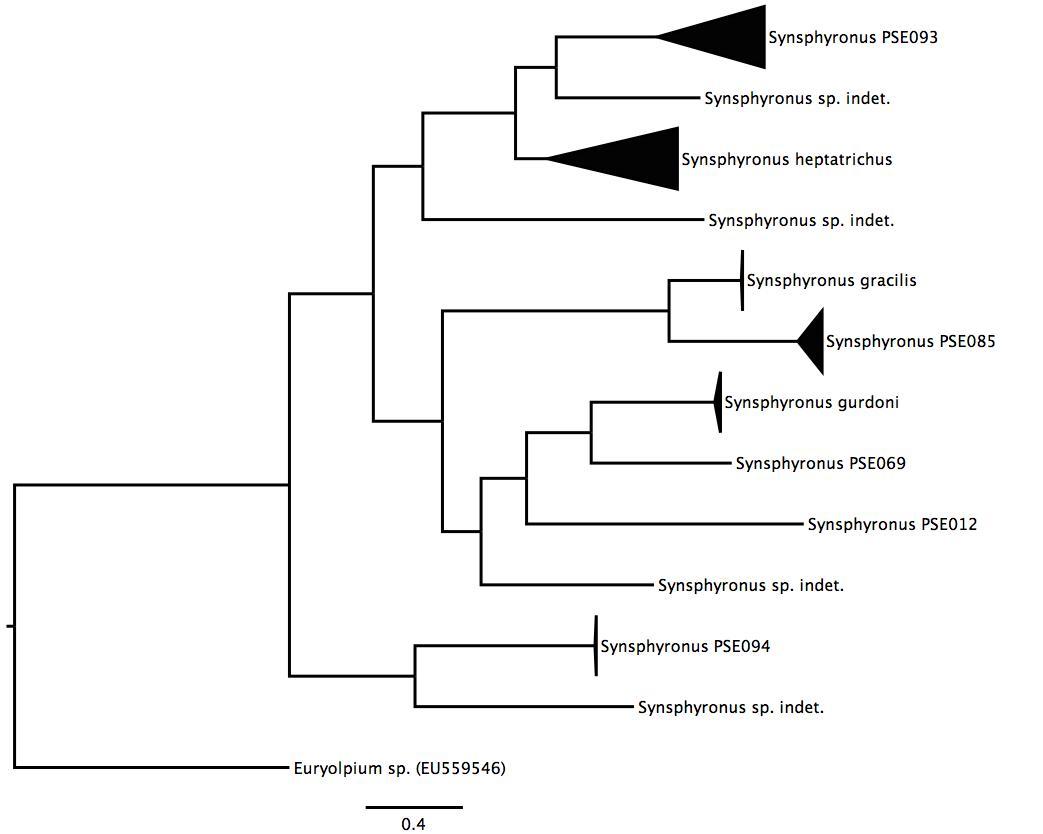Synsphyronus heptatrichus
Pseudoscorpions are small arachnids that resemble scorpions with their grasping pincers (pedipalps). However, they lack the distinctive stinging tail of scorpions, and instead have a pear-shaped body. The full species diversity of pseudoscorpions is unknown, and the Western Australian Museum is a major contributor to describing species and resolving relationships in this poorly understood group.
Morphology
This small pseudoscorpion (ca. 2.5-3.0 mm in length) differs from other species of the genus by the combined presence of fused metatarsi and tarsi, a constricted anterior eye and a trichobothrial pattern of 7 on the fixed finger and 2 on the movable finger.
Evolution
The genus Synsphyronus is the most diverse genus of Garypidae, with approximately 30 named species in Australia, and two named species in New Zealand. A new species has been found in New Caledonia, and there are numerous undescribed species in Australia.
Method of reproduction
Sexual
Habitat
Terrestrial
Under the bark of trees, including; Eucalyptus vitrix, Erythrophleum chlorostachys and Ficus.
Distribution
This species is found in the Pilbara region, WA.
| Kingdom: | Animalia |
|---|---|
| Phylum: | Arthropoda |
| Class: | Arachnida |
| Order: | Pseudoscorpiones |
| Suborder: | Iocheirata |
| Infraorder: | Panctenata |
| Superfamily: | Garypoidea |
| Family: | Garypidae |
| Genus: | Synsphyronus |
| Species: | heptatrichus |
| Name Published Year: | 1987 |
|---|---|
| Rank: | species |
| Scientific Name Authorship: | Harvey |
| Commercial Impact: | None |
| Conservation Assessment: | Least Concern |
Phylogenetic Tree:

Cite this page
Western Australian Museum Collections https://museum.wa.gov.au/online-collections/names/synsphyronus-heptatrichus
Accessed 1 Sep 2023
Rights
We support the open release of data and information about our collections.
Text content on this page is licensed under a Creative Commons Attribution 4.0 International License.
Image content on this page is copyright WA Museum.


